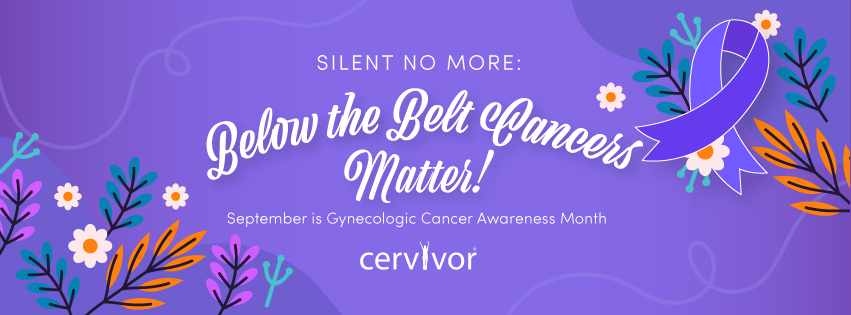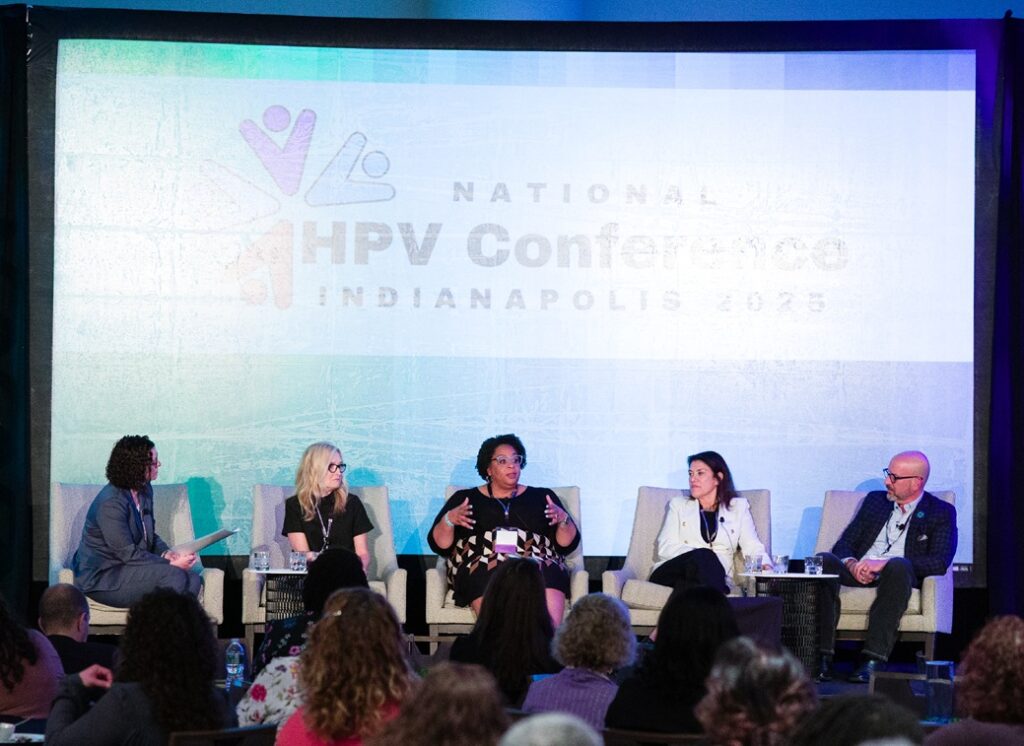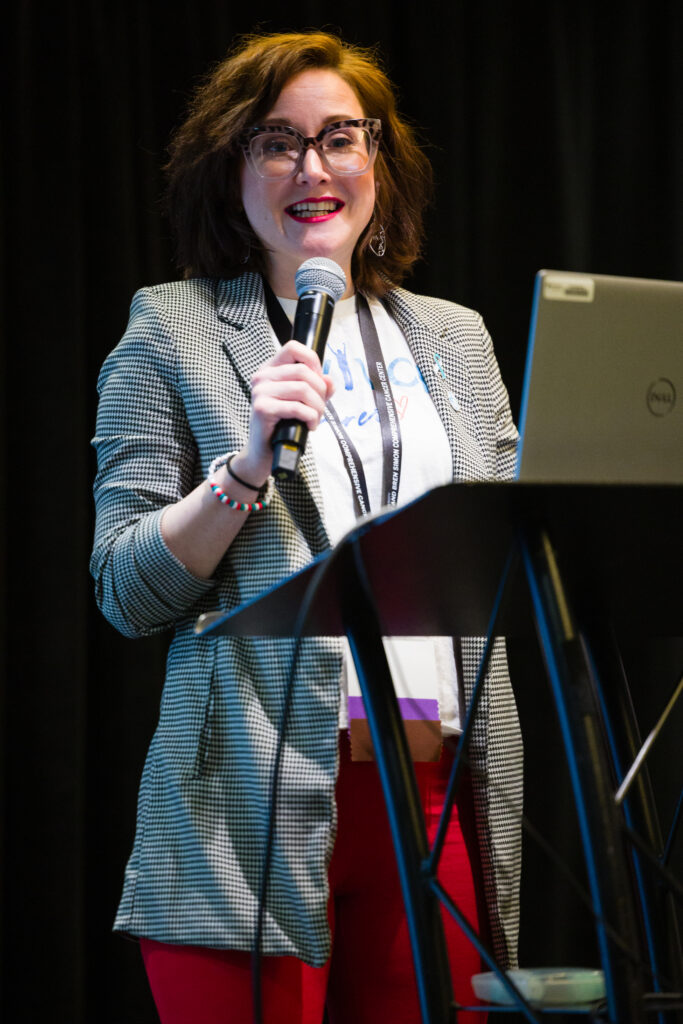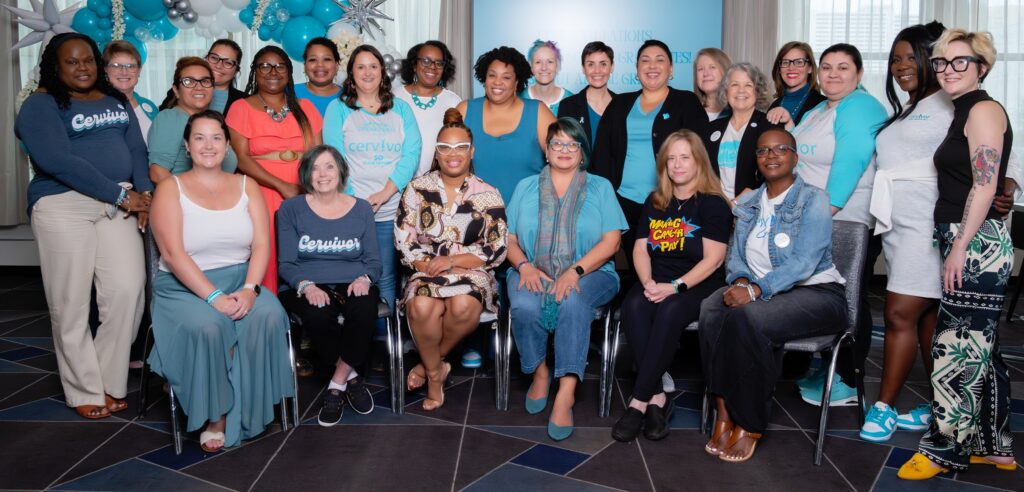This year, over 100,000 people in the U.S. will hear the words: “You have cancer.” For more than 30,000, it will end their life. Gynecologic Cancer Awareness Month (GCAM) 2025 is not just about awareness — it’s about survival, equity, and the power of every story to change what comes next.

In 2025, this awareness comes at a critical crossroads. Recent policy shifts — including restrictions on sexual and reproductive healthcare — are compounding the barriers people already face in accessing screenings, HPV vaccinations, and lifesaving treatment. Medicaid users, rural populations, and those without robust insurance are being pushed further into the margins, where late-stage diagnoses are more likely. Meanwhile, promising research and innovation in maternal health, contraception, and gynecologic care could change outcomes — but without equity in funding and delivery, many will never see those advances in time.

GCAM 2025 matters now more than ever. Silence is deadly. Stories save lives. And we are united in one mission: to spread awareness about gynecologic cancers so that no voice goes unheard, no symptom goes ignored, and no life is cut short.
Breaking the Silence: The Power of Story
Cancer disrupts lives in profound and lasting ways. Yet every time a survivor shares their experience, they create ripples of hope, comfort, and education for someone else. Stories aren’t just personal — they are community tools for change.

Cervivor’s mission is to amplify these voices so that no person faces gynecologic cancer alone and no warning sign is overlooked.
What You Need to Know: Symptoms & Cancers
Awareness begins with knowledge. Here are the five primary types of gynecologic cancers and their warning signs:

- Cervical Cancer → Abnormal bleeding, pelvic pain. Screened via Pap/HPV test.
- Ovarian Cancer → Often called the “silent killer” for vague symptoms like bloating, abdominal pain, and urinary issues. No routine screening.
- Uterine (Endometrial) Cancer → Unusual vaginal bleeding; linked to obesity and hormone factors.
- Vulvar & Vaginal Cancers → Symptoms may include persistent itching, lumps, or sores. HPV vaccination provides protection.
Dispelling Myths
Misinformation creates dangerous delays. Let’s set the record straight:
- Young people are not immune. Gynecologic cancers occur at every age.
- Family history isn’t always the cause. HPV drives many cases.
- Symptoms aren’t always obvious. Small or subtle changes matter.
- These cancers can be survivable. Early detection saves lives.

Health Starts with Self-Care
Health is more than surviving disease; it is thriving in body, mind, and community. This holistic approach to wellness recognizes that our overall health is influenced by a complex interplay of factors, including our physical health, mental well-being, and social connections. By focusing on nurturing these different aspects of our lives, we can cultivate a deeper sense of vitality and resilience that goes beyond just avoiding illness. These five habits can make a difference:
- Keep your checkups. Prevention saves lives.
- Eat to support your health. Balance matters.
- Move your body in ways that work for you.
- Prioritize rest and recovery.
- Stay hydrated — it’s simple but powerful.

Cervivor Ambassador, Pam Akers speaking at the 2025 Cervical Cancer Summit Powered by Cervivor, Inc.
Join our private Facebook community, Survivor Slimdown, where cancer survivors support and empower each other on their journey to a healthier, happier life beyond cancer. Share your story, get motivation, and connect with others who understand the unique challenges and triumphs of survivorship.
Advocacy and Action: Your Role in GCAM 2025
Cervivor is an organization driven by a profound commitment to making a difference in the lives of those affected by cervical cancer. Grounded in a deep understanding of the complexities and challenges surrounding this disease, Cervivor’s mission is built upon a foundation of support, education, and advocacy. This foundation is crucial in fostering an environment where survivors, caregivers, and allies can find support, resources, and a community with a collective voice to push for change. Cervivor’s purpose encompasses various initiatives and efforts that blend and create a comprehensive approach to addressing cancer. This purpose is encapsulated in three core pillars:

- Support and Empowerment → Safe spaces for survivors, caregivers, and allies.
- Education and Awareness → Stories, resources, and campaigns that inform.
- Advocacy for Equity → Advancing HPV vaccination, screening, and policy change so that access is a right, not a privilege.
Cervivor Ambassador, Christy Chambers
How to Get Involved
- Wear your cancer colors to spark conversations.
- Share your story on social media using Cervivor’s templates.
- Educate your circle — share graphics, host conversations.
- Join or host a meet-up to build local connections.
- Contact media to elevate survivor voices.
- Partner with Cervivor — every supporter helps push awareness forward.
Breaking Stigma, Embracing Diversity
Disparities remain stark. Communities of color, rural populations, and LGBTQ+ individuals face disproportionate risk and poorer outcomes. Cervivor is committed to equity: uplifting diverse voices, offering culturally competent resources, and ensuring language access so that every person can protect their health.

Looking Ahead: A Healthier Future
GCAM isn’t just a month on the calendar; it’s a catalyst for lasting awareness and change. Together, by sharing knowledge, building community, and standing united in one mission, we move closer to a future where:
- Gynecologic cancers are rare.
- Survivors thrive.
- Every voice is heard and valued.
This September, own your story, spread awareness, and help Cervivor lead the way to a healthier, more informed world.




